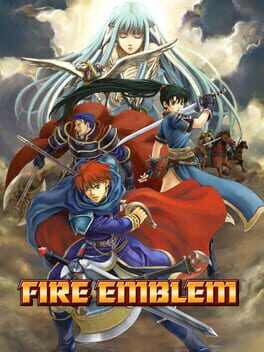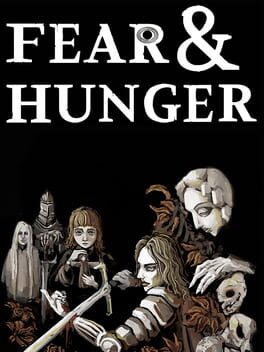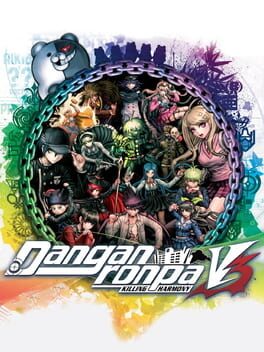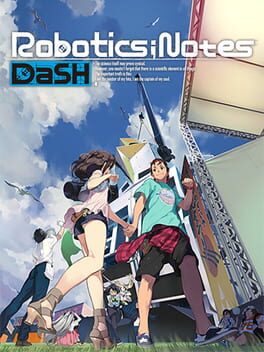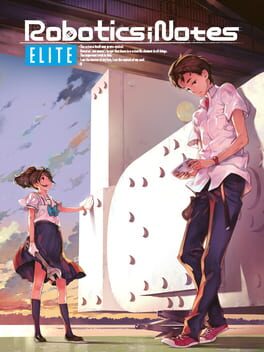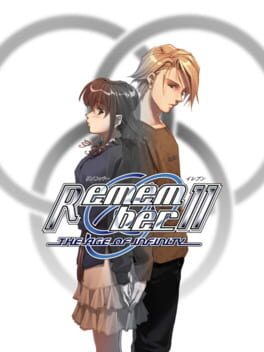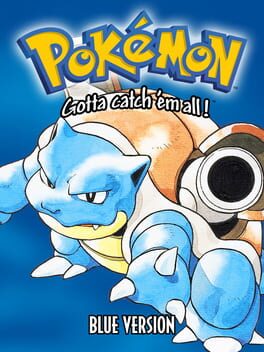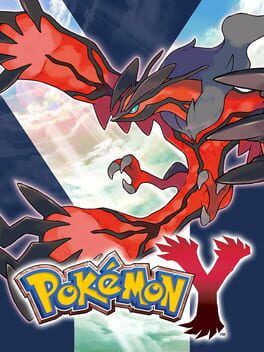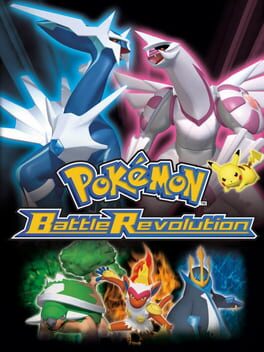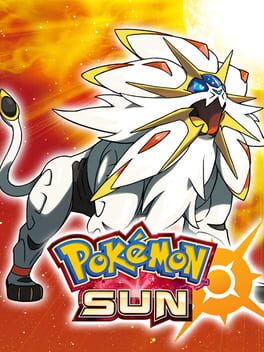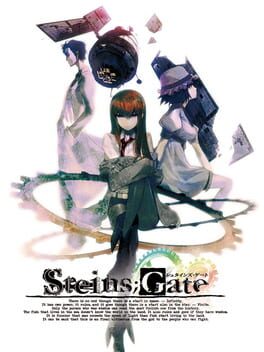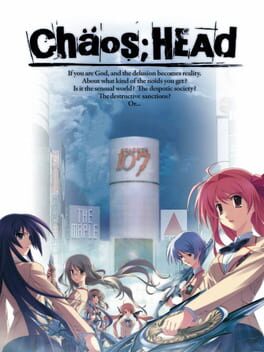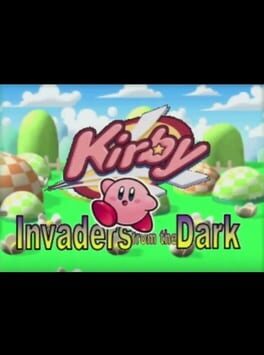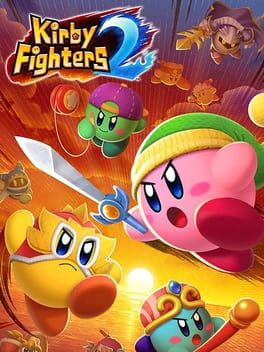AXbi
This was my first entry back into Fire Emblem after almost a decade of dropping the series. And it was so, so worth it. Just about every unit is lovable in their own unique (and usually simple) way. Building my team around my favorite characters and their supports was so satisfying.
I really can't help but emphasize my love for the characters in this game because, for the entry being as straightforwardly Fire Emblem as it is, little bits of flavor like personality, gameplay feel, and relationships are required to make an entry like this stand out. It succeeds at this wonderfully.
PS: Canas and Nino is my favorite support in the entire game and I love their silly little found family/tutor & pupil dynamic sm. I'd replay solely just to see them again. It's a requirement I use them for every playthrough here on out.
I really can't help but emphasize my love for the characters in this game because, for the entry being as straightforwardly Fire Emblem as it is, little bits of flavor like personality, gameplay feel, and relationships are required to make an entry like this stand out. It succeeds at this wonderfully.
PS: Canas and Nino is my favorite support in the entire game and I love their silly little found family/tutor & pupil dynamic sm. I'd replay solely just to see them again. It's a requirement I use them for every playthrough here on out.
2018
This review contains spoilers
looking back on it 6 years after i first played it, i'm kind of surprised how I'm still part of the scant few that manage to "get" the ending but really just not resonate with the overall themes-- which is even more surprising considering the amount of VNs I've visited in that time with similar messages that I HAVE enjoyed.
I felt like the actual mystery could have served to intertwine itself with the overall narrative even more, and I'm just left unsatisfied with the direction the twists took. Not that I don't appreciate what it's going for. It's more so what the final trial was trying to prove didn't quite hit me right.
Not much of the story, looking back, really CHANGED for me upon discovering the truths of the mystery, which, to some extent, I understand is the point. However... Narratively? Idk. Just feels unfulfilling. As if they could've played more with the metafiction narrative. Where the previous entries force the main cast to contend with the differing realities between what they're experiencing and what they're being told is reality, V3 leaves so much to be desired.
For example, in DR1, pictures of the students' past lives would be left as bread crumbs. And it's chilling to look back on those moments in those specific chapters, understanding DR1's reality.
Another example: in DR2, the characters are told explicitly just as much as the DR1 cast knew: that their memories were ripped and that humanity outside of the killing game fell to "The Tragedy". It was information that left the cast confused, and served to propel the final themes the entry ended upon of creating one's own future.
Feel free to disagree with me but... V3 doesn't really have much of that imo. Very little of the game forces the main cast aside from the final survivors to contend with the true message and true reality of the game, that being the power of fiction and how it can impact reality. There definitely are thematic connections to this idea.
More often than not, however, these examples of the themes at play feel so loosely connected from the idea of storytelling, specifically, that it almost feels like V3 tries to justify its themes via word association by changing "lies" to "fiction" and "truth" to "reality" rather than nuanced, interwoven connections a la its predecessors, which did this pretty well, in spite of their simplicity.
It's crazy saying all this, though, because it implies I'd dislike the game but really, it just left me kinda unsatisfied. V3 houses some of the best characters in the whole series for me. Gonta is so lovable. Angie fulfills the itch in me that loves understanding cults and their psychology. Miu, despite having a grating gimmick, is a character I have no choice but to inherently feel a sense of kinship with, being an engineer. Oma's a really fun, layered wild card. Who can dislike Kaito's "Kamina"-esque role? And, for as straightforward as her arc is, I really do enjoy Maki as a "detective's assistant" type character.
Perhaps the only favorite of mine I have to pick a bone with is Shuichi. His arc really is spectacular and REALLY plays with V3's themes strongly but... Using a bait and switch by killing off Kaede to make the MC another shy boy uncertain of his identity whose arc is about attaining direction and confidence just kinda BLOWS, man. For as good at it is (and it REALLY is), I can't help but feel bitter at Kaede being shelved in purpose of serving Shuichi's character.
(on that note, i always did feel like cutting Rantaro off from the story felt like a creative misstep. I mean, I get his mysteries were supposed to die alongside him, but he introduced a level of calmness and style never sincerely brought into the series before. It's a shame Kodaka didn't end up using more of that energy to explore character dynamics.) But that's neither here nor there.
And perhaps this whole rambling piece is neither here nor there. Like I stated at the beginning: it's been 6 years, yet not much of how I feel about this one has changed when I first played it. Makes me sad, knowing how much Danganronpa meant to a younger version of myself. But, oh well. They can't all be bangers
I felt like the actual mystery could have served to intertwine itself with the overall narrative even more, and I'm just left unsatisfied with the direction the twists took. Not that I don't appreciate what it's going for. It's more so what the final trial was trying to prove didn't quite hit me right.
Not much of the story, looking back, really CHANGED for me upon discovering the truths of the mystery, which, to some extent, I understand is the point. However... Narratively? Idk. Just feels unfulfilling. As if they could've played more with the metafiction narrative. Where the previous entries force the main cast to contend with the differing realities between what they're experiencing and what they're being told is reality, V3 leaves so much to be desired.
For example, in DR1, pictures of the students' past lives would be left as bread crumbs. And it's chilling to look back on those moments in those specific chapters, understanding DR1's reality.
Another example: in DR2, the characters are told explicitly just as much as the DR1 cast knew: that their memories were ripped and that humanity outside of the killing game fell to "The Tragedy". It was information that left the cast confused, and served to propel the final themes the entry ended upon of creating one's own future.
Feel free to disagree with me but... V3 doesn't really have much of that imo. Very little of the game forces the main cast aside from the final survivors to contend with the true message and true reality of the game, that being the power of fiction and how it can impact reality. There definitely are thematic connections to this idea.
More often than not, however, these examples of the themes at play feel so loosely connected from the idea of storytelling, specifically, that it almost feels like V3 tries to justify its themes via word association by changing "lies" to "fiction" and "truth" to "reality" rather than nuanced, interwoven connections a la its predecessors, which did this pretty well, in spite of their simplicity.
It's crazy saying all this, though, because it implies I'd dislike the game but really, it just left me kinda unsatisfied. V3 houses some of the best characters in the whole series for me. Gonta is so lovable. Angie fulfills the itch in me that loves understanding cults and their psychology. Miu, despite having a grating gimmick, is a character I have no choice but to inherently feel a sense of kinship with, being an engineer. Oma's a really fun, layered wild card. Who can dislike Kaito's "Kamina"-esque role? And, for as straightforward as her arc is, I really do enjoy Maki as a "detective's assistant" type character.
Perhaps the only favorite of mine I have to pick a bone with is Shuichi. His arc really is spectacular and REALLY plays with V3's themes strongly but... Using a bait and switch by killing off Kaede to make the MC another shy boy uncertain of his identity whose arc is about attaining direction and confidence just kinda BLOWS, man. For as good at it is (and it REALLY is), I can't help but feel bitter at Kaede being shelved in purpose of serving Shuichi's character.
(on that note, i always did feel like cutting Rantaro off from the story felt like a creative misstep. I mean, I get his mysteries were supposed to die alongside him, but he introduced a level of calmness and style never sincerely brought into the series before. It's a shame Kodaka didn't end up using more of that energy to explore character dynamics.) But that's neither here nor there.
And perhaps this whole rambling piece is neither here nor there. Like I stated at the beginning: it's been 6 years, yet not much of how I feel about this one has changed when I first played it. Makes me sad, knowing how much Danganronpa meant to a younger version of myself. But, oh well. They can't all be bangers
2019
Robotics;Notes being my favorite Science Adventure entry, I was extremely excited to hop into this sequel spin-off... only to be met with some of the most irritating, unlikable, and egregious writing I've forced myself to read.
Daru is built to be an incredibly insufferable main character to experience a story through, constantly making jokes and objectifications at the female cast's expense for the first 50-75% of the story. General weirdo anime pervert BS, you know it when you see it and it's always ALWAYS grating.
Thankfully, the other 25%-50% of the story consisted of some really cool character arcs that stayed true and loyal to the characters in the original R;N. Subaru, Junna, and Akiho's routes served to continue their arcs, and did a really awesome job at questioning and exploring these characters. Nae's route gives us a little bit of her history prior to R;N and serves to bridge the gap between R;N and S;G, allowing Nae to pass the baton from the Lab Members to the Robotics Club.
The very end, though (The Last Phase, or "Itaru's Route") felt very plain and straightforward. Had some cool S;G fanservice tho ig lololol
but yeah in conclusion: Not Great
Daru is built to be an incredibly insufferable main character to experience a story through, constantly making jokes and objectifications at the female cast's expense for the first 50-75% of the story. General weirdo anime pervert BS, you know it when you see it and it's always ALWAYS grating.
Thankfully, the other 25%-50% of the story consisted of some really cool character arcs that stayed true and loyal to the characters in the original R;N. Subaru, Junna, and Akiho's routes served to continue their arcs, and did a really awesome job at questioning and exploring these characters. Nae's route gives us a little bit of her history prior to R;N and serves to bridge the gap between R;N and S;G, allowing Nae to pass the baton from the Lab Members to the Robotics Club.
The very end, though (The Last Phase, or "Itaru's Route") felt very plain and straightforward. Had some cool S;G fanservice tho ig lololol
but yeah in conclusion: Not Great
2014
Truly my favorite entry in the Science Adventure series, and one of my favorite VNs of all time.
A shining example of SciAdv playing to its strengths of character writing, slice-of-life, detailed sci-fi aspects, and larger narrative worldbuilding. The characters are steeped in analysis of personalities and relationships. The slice-of-life is mellow and serves to explore the characters well. As someone with a degree in electrical engineering, I can speak to how realistic, yet wondrous, the sci-fi behind electromagnetism and robotics truly is in this entry. And not to mention how well the story of R;N fits neatly and expounds greatly upon the already established lore of Science Adventure.
It's truly one of the coziest, loveliest, most heartwarming stories I have ever read.
I love it dearly. Please read R;N if you haven't already.
A shining example of SciAdv playing to its strengths of character writing, slice-of-life, detailed sci-fi aspects, and larger narrative worldbuilding. The characters are steeped in analysis of personalities and relationships. The slice-of-life is mellow and serves to explore the characters well. As someone with a degree in electrical engineering, I can speak to how realistic, yet wondrous, the sci-fi behind electromagnetism and robotics truly is in this entry. And not to mention how well the story of R;N fits neatly and expounds greatly upon the already established lore of Science Adventure.
It's truly one of the coziest, loveliest, most heartwarming stories I have ever read.
I love it dearly. Please read R;N if you haven't already.
This review contains spoilers
Heavily recommend you try and think about the game on your own time before reading this review fully. The following is my take on R11:
You, as the reader, have the ability to analyze the world of Remember11 as you see fit, but, occasionally, this ability will leak itself into a sort of omnipotence, an omnipotence of which you yourself cannot control. At times, this omnipotence is literal, in the form of choices prompted to the reader along the way made to guide one of our protagonists' actions. At other times, it's a lot more subtle, as the reader can pick choices that affect how characters other than a protagonist can act, whether it be driving them to insanity, picking what food they eat, or even something as simple as stressing them out, you have control over everybody. Your power is unlimited and unstoppable. You experience two character routes: One of the heroine, Kokoro, and the other of the hero, Satoru. Your interest is guided towards the former, after all, she's the character whose perspective you begin the story with, and so, you begin going through her narrative, swapping bodies between Kokoro in the mountaintop cabin and Satoru in SPHIA, trying to solve the various mysteries that come your way and survive through the harsh blizzard that torments Akakura Mountain as well as the murderer hunting you down on Aosagi Island. Along your path, you learn certain aspects of your other half, Satoru. You learn he dislikes pumpkin, that he hates having objects wrapped around his wrist, and that he was once in a relationship with one of the people stuck in the cabin on Akakura Mountain, all through the perspective of Kokoro, whose personality is switching bodies between herself and Satoru's. Unknowingly, this molds your perception of him; as Kokoro's narrative ends, this is where your knowledge of his character begins. Having finished Kokoro's chapter, you move on to your next target: Satoru. After having fallen off of a 15 meter high clock tower, he's lost part of his memories... or perhaps, your influence of the characters is so great and so strong... That your limited impression of him was cast upon him to form an entirely new identity, different from that introduced to us alongside Kokoro in the prologue. As he wakes up from his fall, there is not much he remembers about himself, that is, aside from what you, the reader, remember about him from hearing of him from Kokoro's perspective. He distinctively remembers his distaste for pumpkin, his dislike of wrist accessories, and his past relationship, but not anything else that you have not learned previously from other characters. It would not be unrealistic to say that you have created a new Satoru. Yet, you continue onwards, not realizing your own power and the misery it brings to others. You read and read, looking for answer, looking for an end to it all. You complete Satoru's chapter, but that, too, ends much like a bad ending does. You look back and try to fix what could have went wrong to give yourself the satisfaction of a solution, twisting these characters into demons just to obtain a drop of that sweet, sweet catharsis you long for. Each choice. Each bad ending. Each death, and each life. They no longer bear meaning to you, so long as you can find the single true ending you've been looking for... But it isn't there... No matter where you look, you are stuck in an endless loop. Your power, once limitless, is now tied down to the few characters before you. Your existence, once timeless, is now constricted to a single week, happening over and over again. Then you begin to wonder... Why? You recall that a man with sunglasses, previously called Enomoto, who is the person you surmise to be the real Satoru, as opposed to the blonde individual you assume the perspective of, treats you with contempt and hinted at a plan. You begin to wonder what his possible motives could be... Why would he despise you so? And what is this plan? Could it be the cause of this loop? During your thought, you recall one of the details you have unlocked on your endless journey-- the fact that this Satoru had a little sister, Sayaka. You attempt to piece together what you have learned so far, and remember a particular scene in the prologue. It was a scene soon after Kokoro was explaining the massacre of Awazumi Hospital, a horrible mass murder done by a girl named Keiko Inubushi. An image of her face was shown to you. She had a pale face with dark hair, big eyes, and raised eyebrows. The story continued forward to a flashback showing a girl with similar features, but much younger. She's in a hospital, talking to someone else. You are not sure who she is talking to, but she's afraid of something. Of what? Of herself, of the fact that she will kill someone yet again. It was at this point in the prologue you assembled this information together: Her physical similarities to Keiko, her background of being in a hospital, the possibility of a murderous personality lurking within her, and possibly even her voice, and you assumed, with little prior knowledge to go off of... That this girl is a younger Keiko Inubushi. However, upon recalling this scene, you realize you have made a grave mistake. This girl was once Sayaka and the person she was calling out to... was her brother Satoru. However, it is too late. Your ability has done away with the identity of Sayaka Yukidoh, and has instead replaced it with the horrible personality of Keiko Inubushi. Your perspective is now tainted. You cannot go back. You cannot pretend as if this revelation has never occurred. The more you try to not think about it... the more you firmly believe that Sayaka and Keiko are one and the same. Sayaka is gone forever. It is for this reason, this carelessness for human life that you clearly exhibit, as you constantly try to search for answers, ignoring the emotions and lives of the people you abuse to attain your goals, that you are stuck... in an infinity loop.
There is a lot more I can say about this visual novel, but I suppose you could say its existence itself is the best thing about it.
You, as the reader, have the ability to analyze the world of Remember11 as you see fit, but, occasionally, this ability will leak itself into a sort of omnipotence, an omnipotence of which you yourself cannot control. At times, this omnipotence is literal, in the form of choices prompted to the reader along the way made to guide one of our protagonists' actions. At other times, it's a lot more subtle, as the reader can pick choices that affect how characters other than a protagonist can act, whether it be driving them to insanity, picking what food they eat, or even something as simple as stressing them out, you have control over everybody. Your power is unlimited and unstoppable. You experience two character routes: One of the heroine, Kokoro, and the other of the hero, Satoru. Your interest is guided towards the former, after all, she's the character whose perspective you begin the story with, and so, you begin going through her narrative, swapping bodies between Kokoro in the mountaintop cabin and Satoru in SPHIA, trying to solve the various mysteries that come your way and survive through the harsh blizzard that torments Akakura Mountain as well as the murderer hunting you down on Aosagi Island. Along your path, you learn certain aspects of your other half, Satoru. You learn he dislikes pumpkin, that he hates having objects wrapped around his wrist, and that he was once in a relationship with one of the people stuck in the cabin on Akakura Mountain, all through the perspective of Kokoro, whose personality is switching bodies between herself and Satoru's. Unknowingly, this molds your perception of him; as Kokoro's narrative ends, this is where your knowledge of his character begins. Having finished Kokoro's chapter, you move on to your next target: Satoru. After having fallen off of a 15 meter high clock tower, he's lost part of his memories... or perhaps, your influence of the characters is so great and so strong... That your limited impression of him was cast upon him to form an entirely new identity, different from that introduced to us alongside Kokoro in the prologue. As he wakes up from his fall, there is not much he remembers about himself, that is, aside from what you, the reader, remember about him from hearing of him from Kokoro's perspective. He distinctively remembers his distaste for pumpkin, his dislike of wrist accessories, and his past relationship, but not anything else that you have not learned previously from other characters. It would not be unrealistic to say that you have created a new Satoru. Yet, you continue onwards, not realizing your own power and the misery it brings to others. You read and read, looking for answer, looking for an end to it all. You complete Satoru's chapter, but that, too, ends much like a bad ending does. You look back and try to fix what could have went wrong to give yourself the satisfaction of a solution, twisting these characters into demons just to obtain a drop of that sweet, sweet catharsis you long for. Each choice. Each bad ending. Each death, and each life. They no longer bear meaning to you, so long as you can find the single true ending you've been looking for... But it isn't there... No matter where you look, you are stuck in an endless loop. Your power, once limitless, is now tied down to the few characters before you. Your existence, once timeless, is now constricted to a single week, happening over and over again. Then you begin to wonder... Why? You recall that a man with sunglasses, previously called Enomoto, who is the person you surmise to be the real Satoru, as opposed to the blonde individual you assume the perspective of, treats you with contempt and hinted at a plan. You begin to wonder what his possible motives could be... Why would he despise you so? And what is this plan? Could it be the cause of this loop? During your thought, you recall one of the details you have unlocked on your endless journey-- the fact that this Satoru had a little sister, Sayaka. You attempt to piece together what you have learned so far, and remember a particular scene in the prologue. It was a scene soon after Kokoro was explaining the massacre of Awazumi Hospital, a horrible mass murder done by a girl named Keiko Inubushi. An image of her face was shown to you. She had a pale face with dark hair, big eyes, and raised eyebrows. The story continued forward to a flashback showing a girl with similar features, but much younger. She's in a hospital, talking to someone else. You are not sure who she is talking to, but she's afraid of something. Of what? Of herself, of the fact that she will kill someone yet again. It was at this point in the prologue you assembled this information together: Her physical similarities to Keiko, her background of being in a hospital, the possibility of a murderous personality lurking within her, and possibly even her voice, and you assumed, with little prior knowledge to go off of... That this girl is a younger Keiko Inubushi. However, upon recalling this scene, you realize you have made a grave mistake. This girl was once Sayaka and the person she was calling out to... was her brother Satoru. However, it is too late. Your ability has done away with the identity of Sayaka Yukidoh, and has instead replaced it with the horrible personality of Keiko Inubushi. Your perspective is now tainted. You cannot go back. You cannot pretend as if this revelation has never occurred. The more you try to not think about it... the more you firmly believe that Sayaka and Keiko are one and the same. Sayaka is gone forever. It is for this reason, this carelessness for human life that you clearly exhibit, as you constantly try to search for answers, ignoring the emotions and lives of the people you abuse to attain your goals, that you are stuck... in an infinity loop.
There is a lot more I can say about this visual novel, but I suppose you could say its existence itself is the best thing about it.
1996
I often feel like Gen I is misunderstood. Sure, it's a disgusting, glitchy, aged mess of a game, but I've always appreciated its simplicity. There is no "end of the world" plot. Everything you encounter has happened because you, the player, adventured where nobody else did before. Kanto, as a region, doesn't really have a linear design like later games do, which allows the player to explore a big portion of the game however they wish, with the player unlocking more and more of the world simply by going off of the hints and vague direction-pointing that the game offers. It creates a very rewarding experience when the player really has managed to find a certain item or go to a certain place. Played this one tons of times and will play again...
2013
2016
I think the atmosphere of Alola is truly unmatched, with some of the best characters in the series. A lot of people complain how this game holds your hand, but I feel like a lot of the smaller aspects to the region and its story aren't as explicit as its gameplay directions, so it was fun to walk around and find enjoyment out of various little details along the way.
2009
2008
Man, this sucked. Supporting cast was dreadfully boring. The only possible redeeming aspect to this was Takumi, but the story and set-up really failed to make any of the tragic aspects of his character really hit, and it always just felt as if he was a main character in the wrong story with how rarely any of the other characters really follow through on the themes his character introduced.
2020
